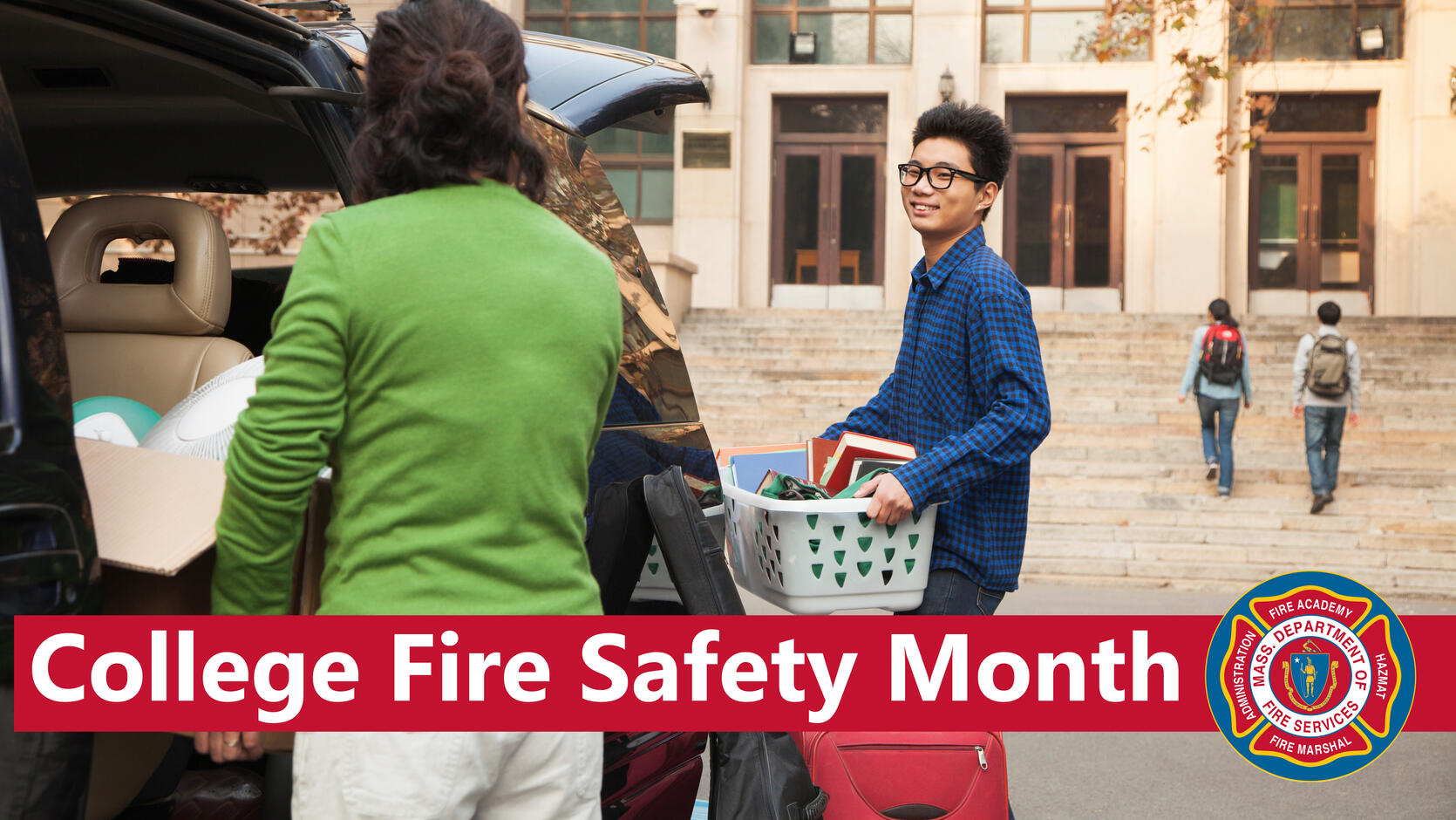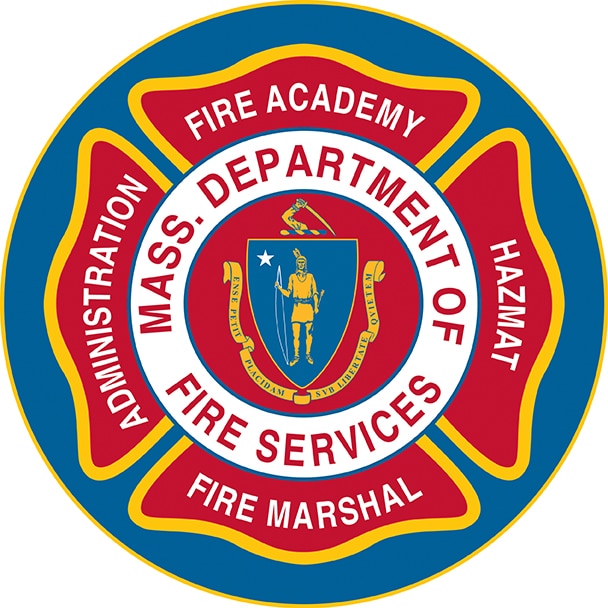- Department of Fire Services
Media Contact
Jake Wark, Public Information Officer

STOW — September is College Fire Safety Month in Massachusetts, and State Fire Marshal Jon M. Davine is reminding students, parents, and others to be sure that their living spaces have working smoke alarms and carbon monoxide (CO) alarms, and that they know two ways out in an emergency.
Massachusetts fire departments reported 2,491 fires in student dormitories, fraternities, and sororities in Massachusetts between 2020 and 2024. These fires caused five civilian injuries, 11 fire service injuries, and around $3.7 million in estimated damages. More than 90% of them were related to unsafe cooking, with unattended cooking the most common factor.
“It doesn’t matter if you’re an experienced chef or cooking for yourself for the first time – always stay in the kitchen when you’re cooking on the stovetop,” said State Fire Marshal Davine. “Set a timer if you’ve got something in the oven, and if you’re drowsy or impaired then order takeout. Falling asleep with food on a burner is a recipe for disaster.”
More fires occur on campus in September than any other month, followed closely by October, and generally decline through the school year. Fire officials also share a concern about fire safety in apartments and other types of off-campus student housing, where two college students died in separate, unrelated fires in 2013.
“Fire safety is one of the most important factors whether you live in a dorm, apartment, single-family home, multifamily dwelling, sorority, or fraternity,” said State Fire Marshal Davine. “Everyone should have working smoke and CO alarms on every level of their residence and know two or more ways out in case of an emergency. In the event of a fire, don’t waste precious time gathering personal belongings – get out, stay out, and call 911.”
He also noted that fire safety precautions should remain in place through the entirety of the year. Windows, doors, and stairways should be clear of boxes, furniture, bicycles, and any other obstructions at all times. Fire doors should never be blocked. And, as required by law, smoke and carbon monoxide alarms must be in operation year-round.
“If your rental doesn’t have smoke and carbon monoxide alarms, insist on them,” State Fire Marshal Davine said. “Landlords are legally required to provide these vital safety tools. Check the manufacturing date printed on the back of your smoke alarms and replace them if they’re more than 10 years old. Carbon monoxide alarms should be replaced after five, seven, or 10 years, depending on the make and model. And test your alarms once a month so you know they’re working properly.”
Working alarms, clear exit routes, and practicing a plan for using them are crucial for when a fire breaks out, but students can also take steps to prevent them from starting in the first place:
- Smoking: There is no safe way to smoke, but if you must smoke then do it responsibly. Don’t flick them on the ground, where they can smolder and ignite debris, or grind them out on porches or steps. Use a heavy ashtray on a sturdy surface and put it out all the way every time.
- Electrical: Always plug appliances like air conditioners and space heaters into wall sockets that can handle the current, not power strips or extension cords. Don’t overload outlets with multiple devices.
- Heating: Turn space heaters off when leaving the room or going to sleep. Never leave a space heater unattended.
- Cooking: Stand by your pan! Don’t leave pots and pans unattended on a lit stovetop, and keep flammable items away from burners. In the event of a grease fire, smother the flames with a lid and then turn off the heat. Only cook when you’re alert, not when you’re drowsy or impaired.
- Candles: Never leave candles burning unattended. Extinguish them before leaving the room. Even better, switch to battery-powered candles.
- Lithium-Ion Batteries: Use the charging equipment provided by the manufacturer and disconnect it when the device is charged. Charge phones, laptops, e-cigarettes, e-bike batteries, and other devices on a hard and stable surface – never a bed, couch, or pillow. If you notice an unusual odor, change in color, change in shape, leaking, or odd noises, stop using the device right away. If you are able to do so safely, move it away from anything that can burn and call your local fire department.
For more fire safety tips for both on and off campus, visit www.mass.gov/dfs.
###
